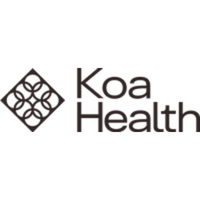Taking a cross-generational approach to mental wellbeing
Mental health exists across a continuum. Everyone falls at a point on a wide range, from mentally very well to mentally ill and where we fall between those extremes is likely to vary at different moments in our lives.
And while the levels of stigma and preferences for types of care can vary, mental health continues to be a top concern across age groups. However, Gen Z and Millennials tend to rank it as a higher priority than Gen X or Baby Boomers.
Yet, no generation is a monolith and treating them as such is shortsighted and unlikely to offer good results. To build a truly comprehensive approach that appeals across generations and, more importantly, people’s unique circumstances, employers must consider three key ingredients — flexibility, variety and accessibility.
1. Flexibility for work-life balance
Whether we’re discussing benefits or a working model, a little flexibility can go a long way towards supporting a multigenerational workforce’s mental wellbeing. Policies and ways of working that allow people freedom around when and where they work help employees balance their personal and professional lives.
This is especially true when they’re combined with benefits that adapt to people’s needs with in-person and remote options.
Hybrid and flexible benefits and working models are especially apt for multigenerational teams. They allow employees to thrive during distinct life stages: these models can, for example, permit carers and people with chronic health problems to work (and receive care) from home as needed. They also allow employees who are commuting to follow up on their mental and physical health at the times and places that work for them.
2. Variety for wider appeal
Variety isn’t just the spice of life — it’s a key ingredient in inclusion. To ensure your mental health benefits appeal to the diverse generations that make up your employee population, you’ll need to offer access to mental health tools available in different modes and formats.
Self-guided digital solutions can provide an easy and private access point to varying levels of mental health care. This can help improve engagement and uptake with generations and individuals who may avoid seeking in-person care because of inconvenience or stigma.
3. Accessibility for inclusion
Access to effective and evidence-based mental health care is a critical factor in the overall health of people of all ages and backgrounds.
For many employers, making this a reality will mean expanding coverage to create a hybrid mental health offering with more digital options for resilience and prevention-centred support — while maintaining face-to-face care for those instances that require a human touch.
An added benefit to this approach is reduced costs and waiting times, as people are empowered to pursue the care they need in a timely manner.
While people across generations and locations all have unique experiences, employees of all ages share similar concerns about mental health and value certain core benefits to support their wellbeing.
Despite the common misconception that multigenerational teams have vastly different needs, mental health impacts wellbeing across the entire lifespan and everyone needs access to support.
Therapy modalities grounded in science, such as cognitive behavioural therapy (CBT) have been proven to be effective across ages and a wide range of mental health difficulties. However, accessing evidence-based treatment can be challenging for people across age groups due to barriers such as cost, stigma or even availability of in-person care and age is an important factor to consider to improving mental health offers.
Although there are differences in people’s circumstances at different life stages, relying on tired generational labels (Boomers, Millennials, etc.) isn’t the answer. A more effective approach to supporting mental health involves leaning into flexibility, variety and accessibility. Ideally, policies (and benefits) will adapt to your workers’ unique circumstances and serve their needs.
Supporting mental health across age groups can be challenging, but it’s worth the effort.
Want to find out more about how mental health impacts health and safety for employees of all ages? Download our toolkit, Mental Health: A safety issue?
Supplied by REBA Associate Member, Koa Health
At Koa Health, we believe digital mental health solutions are the answer to mental health issues.







